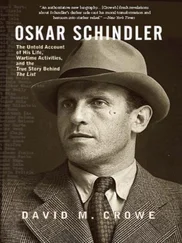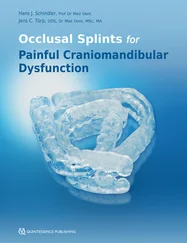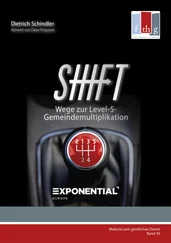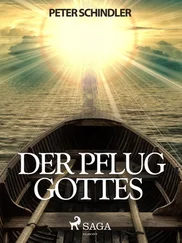One of these 30 metalworkers, a man named Moshe Henigman, left a public account of their unlikely deliverance. A little after Christmas, 10,000 prisoners from the quarries of Auschwitz III—FROM such establishments as the Krupp Weschel-Union armaments factory and from German Earth and Stone, from the Farben synthetic-petroleum plant and the airplane-dismantling enterprise—were put in a column and marched away toward Gróss-Rosen. Perhaps some planner believed that once they arrived in Lower Silesia, they would be distributed among the area’s factory camps. If that was the scheme, it escaped the SS officers and men who marched with the prisoners. It ignored also the devouring cold of the merciless turning of the year, and it did not inquire how the column would be fed. The limpers, the coughers were culled out at the beginning of each stage and executed. Of 10,000, says Henigman, there were within ten days only 1,200 left alive. To the north, Koniev’s Russians had burst across the Vistula south of Warsaw and seized all the roads on the column’s northwesterly route. The diminished group was therefore put in an SS compound somewhere near Opole. The Commandant of the place had the prisoners interviewed, and lists made of the skilled workers. But each day the weary selections continued, and the rejects were shot. A man whose name was called out never knew what to expect, a lump of bread or a bullet. When Henigman’s name was called, however, he was put in a railway car with 30 others and, under the care of an SS man and a Kapo, was shunted south. “We were given food for the trip,” Henigman recalls. “Something unheard of.”
Henigman later spoke of the exquisite unreality of arriving at Brinnlitz. “We could not believe that there was a camp left where men and women worked together, where there were no beatings, no Kapo.” His reaction is marked by a little hyperbole, since there was segregation in Brinnlitz. Occasionally, too, Oskar’s blond girlfriend let fly with an open palm, and once when a boy stole a potato from the kitchen and was reported to Liepold, the Commandant made him stand on a stool all day in the courtyard, the potato clamped in his open mouth, saliva running down his chin, and the placard “I AM A POTATO THIEF!” hung around his neck. But to Henigman this sort of thing was not worthy of report. “How can one describe,” he asks, “the change from hell to paradise?”
When he met Oskar, he was told to build himself up. Tell the supervisors when you’re ready to work, said the Herr Direktor. And Henigman, faced with this strange reversal of policy, felt not simply that he’d come to a quiet pasture, but that he had gone through the mirror.
Since 30 tinsmiths were merely a fragment of the 10,000, it must be said again that Oskar was only a minor god of rescue. But like any tutelary spirit, he saved equally Goldberg and Helen Hirsch, and equally he tried to save Dr. Leon Gross and Olek Rosner. With this same gratuitous equality, he made a costly deal with the Gestapo in the Moravia region. We know that the contract was struck, but we do not know how expensive it was. That it cost a fortune is certain.
A prisoner named Benjamin Wrozlawski became one subject of this deal. Wrozlawski was formerly an inmate of the labor camp at Gliwice. Unlike Henigman’s camp, Gliwice was not in the Auschwitz region, but was close enough to be one of the Auschwitz subsidiary camps. By January 12, when Koniev and Zhukov launched their offensive, Hóss’s awesome realm and all its close satellites were in danger of instant capture. The Gliwice prisoners were put in Ostbahn cars and shipped toward Fernwald. Somehow Wrozlawski and a friend named Roman Wilner jumped from the train. One popular form of escape was through loosened ventilators in the cars’ ceilings. But prisoners who tried it were often shot by guards stationed on the roofs. Wilner was wounded during this escape, but he was able to travel, and he and his friend Wrozlawski fled through the high quiet towns of the Moravian border. They were at last arrested in one of these villages and taken to the Gestapo offices in Troppau.
As soon as they had arrived and been searched and put in a cell, one of the gentlemen of the Gestapo walked in and told them that nothing bad would happen. They had no reason to believe him. The officer said further that he would not transfer Wilner to a hospital, in spite of the wound, for he would simply be collected and fed back into the system. Wrozlawski and Wilner were locked away for nearly two weeks. Oskar had to be contacted and a price had to be settled. During that time, the officer kept talking to them as if they were in protective custody, and the prisoners continued to find the idea absurd. When the door was opened and the two of them were taken out, they presumed they were about to be shot. Instead, they were led to the railway station by an SS man who escorted them on a train southeast toward Brno.
For both of them, the arrival at Brinnlitz had that same surreal, delightful and frightening quality it had had for Henigman. Wilner was put in the clinic, under the care of Doctors Handler, Lewkowicz, Hilfstein, Biberstein. Wrozlawski was put in a sort of convalescent area which had been set up—for extraordinary reasons soon to be explained—in a corner of the factory floor downstairs. The Herr Direktor visited them and asked how they felt. The preposterous question scared Wrozlawski; so did the surroundings. He feared, as he would put it years later, “the way from the hospital would lead to execution, as was the case in other camps.” He was fed with the rich Brinnlitz porridge, and saw Schindler frequently. But as he confesses, he was still confused, and found the phenomenon of Brinnlitz hard to grasp.
By the arrangement Oskar had with the provincial Gestapo, 11 escapees were added to the crammed-in camp population. Each one of them had wandered away from a column or jumped from a cattle car. In their stinking stripes, they had tried to stay at large. By rights, they should all have been shot.
In 1963, Dr. Steinberg of Tel Aviv testified to yet another instance of Oskar’s wild, contagious, and unquestioning largesse. Steinberg was the physician in a small work camp in the Sudeten hills. The Gauleiter in Liberec was less able, as Silesia fell to the Russians, to keep labor camps out of his wholesome province of Moravia. The camp in which Steinberg was imprisoned was one of the many new ones scattered among the mountains. It was a Luftwaffe camp devoted to the manufacture of some unspecified aircraft component. Four hundred prisoners lived there. The food was poor, said Steinberg, and the workload savage. Pursuing a rumor about the Brinnlitz camp, Steinberg managed to get a pass and the loan of a factory truck to go and see Oskar. He described to him the desperate conditions in the Luftwaffe camp. He says that Oskar quite lightly agreed to allocate him part of the Brinnlitz stores. The main question that preoccupied Oskar was, On what grounds could Steinberg regularly come to Brinnlitz to pick up supplies? It was arranged that he would use some excuse to do with getting regular medical aid from the doctors in the camp clinic.
Twice a week thereafter, says Steinberg, he visited Brinnlitz and took back to his own camp quantities of bread, semolina, potatoes, and cigarettes. If Schindler was around the storehouse on the day that Steinberg was loading up, he would turn his back and walk away.
Steinberg does not give any exact poundage of food, but he offers it as a medical opinion that if the Brinnlitz supplies had not been available, at least 50 of the prisoners in the Luftwaffe camp would have died by the spring. Apart from the ransoming of the women in Auschwitz, however, the most astounding salvage of all was that of the Goleszów people. Goleszów was a quarry and cement plant inside Auschwitz III itself, home of the SS’-OWNED German Earth and Stone Works. As has been seen with the 30 metalsmiths, throughout January 1945 the dread fiefdoms of Auschwitz were being disbanded, and in mid-month 120 quarry workers from Goleszów were thrown into two cattle cars. Their journey would be as bitter as any, but would end better than most. It is worth remarking that, like the Goleszów men, nearly everyone else in the Auschwitz area was on the move that month. Dolek Horowitz was shipped away to Mauthausen. Young Richard, however, was kept behind with other small children. The Russians would find him later in the month in an Auschwitz abandoned by the SS and would claim quite correctly that he and the others had been detained for medical experiments.
Читать дальше












